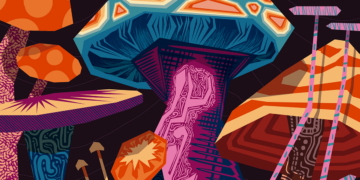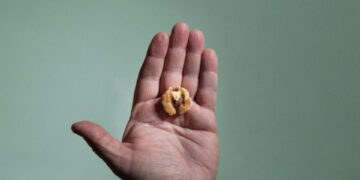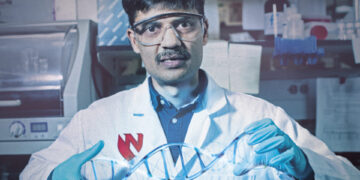Good nutrition is vital to the proper growth and development of children. The reality of childhood obesity is visible in our day-to-day lives; however, parents need to understand the dangers and warning signs associated with an unhealthy diet before it gets to the point of obesity. Among other complications, an unbalanced, unhealthy diet in children has a direct effect on how the body functions, from constipation to acne to depression.r
Obesity & High Blood Pressure
rIn 2006, Nebraska had an adult obesity rate of 24.4% according to a report by Trust for America’s Health. Children often learn from adults by example, so as the adult obesity rate increases, so does childhood obesity. Childhood obesity is defined as a child or adolescent having an excess of 25% body fat. This can be determined by a skin fold test or a Body Mass Index (BMI) test.
High blood pressure is a very real and scary side effect of obesity. It is a crucial diagnosis in children because it can lead to other serious complications such as kidney disease, heart abnormalities or problems with the nervous or endocrine system. If the high blood pressure continues without medical help, the constant pressure on the blood vessels can damage vital organs, and possiblyrlead to heart failure or stroke.r
Constipation
rConstipation is another common problem associated with poor nutrition. An improper amount of junk food such as chips, sweets, fried foods, and non-diet soft drinks may be problematic. Too much dairy (milk, yogurt, cheeses, and ice cream) in your child’s diet may also affect bowel movement. All foods, even junk foods, are fine in moderation. Boys Town Pediatrics recommends that parents follow the MyPlate guidelines (formerly known as the Food Pyramid) to help keep a balance of nutritious foods in their child’s diet.r
Acne
rThere are many common myths and misconceptions regarding the cause of acne. Among such causation myths are poor hygiene and an unhealthy diet. However, neither hygiene nor diet actually causes acne. It is rather an unfortunate consequence of overactive sebaceous (oil) glands. Yet, once glands become active acne lesions, it is possible for certain foods often associated with a poor diet to increase the oil supplies and worsen the severity and prevalence of such lesions. Including healthy and vitamin-rich foods into your child’s diet, especially those with Vitamins A and E, and drinking plenty of water, can lead to healthier-looking skin.r
Depression
rWe are all familiar with the saying, “You are what you eat.” If your child’s diet is consistently unhealthy, he or she will likely see a change in weight, and will physically feel the negative impact of the unhealthy foods. Inadequate nutrition often leads to a lack of physical drive, which in turn lessens a child’s stamina to play and participate in sports or other extracurricular activities, and may also decrease his or her ability to stay focused and concentrate on cognitive tasks such as homework. This can lead to irritability, mood swings, behavior problems, low self-esteem, and even depression. If you think your child is suffering from depression, contact your child’s physician.














